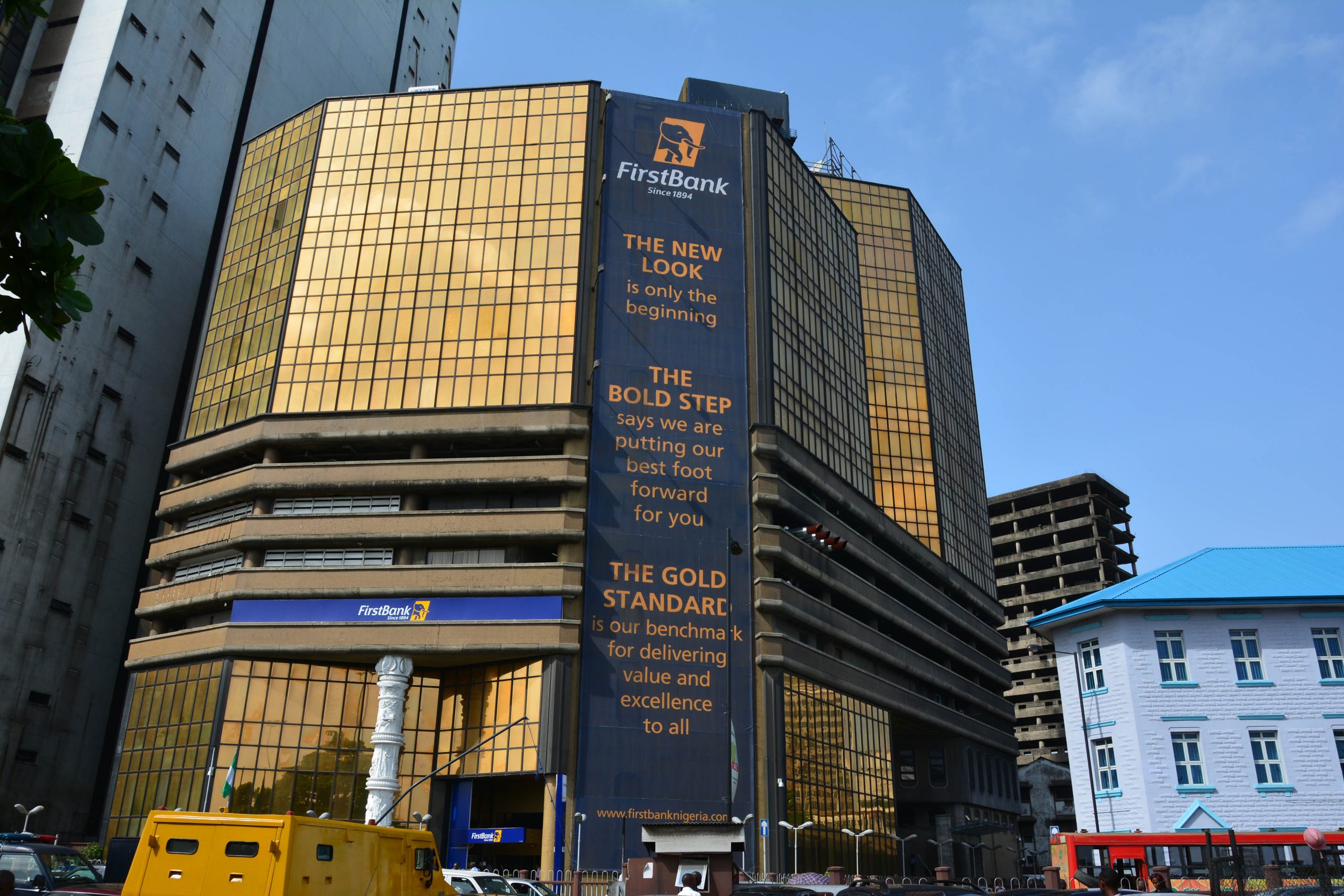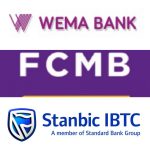...To get all news updates, Join our WhatsApp Group (Click Here)
Also Join our WhatsApp Channel (Click Here)
…seeks to enforce rights over its 5.38bn (15.01%) shares
The legal quagmire in Nigeria’s oldest financial institution, FBN Holdings, has just got more complicated, with the largest single shareholder, Barbican Capital Limited taking out a lawsuit against the bank to protect its rights over shares held in the financial institution.
Barbican Capital went to court after it received notification that showed that FBN Holdings sought to reduce its five billion, three hundred and eighty-six million, three hundred and ninety-seven thousand, two hundred and two (5,386,397,202) total shareholding in the bank by 40 percent.
FBN Holdings sparked confusion in its December 2023 audited accounts released in May where it slashed Barbican’s shareholding in the bank to 3.1 billion (3,110,400,619) or 8.67 percent of the lender’s total shares from the earlier reported 4.8 billion (4,886,062,743) shares or 13.61 percent in its December 2023 unaudited accounts published in February.
A note attached to the audited accounts strangely said the 3.1 billion shares represent the total that had been “verified” by the Central Bank of Nigeria.
In its lawsuit against FBN Holdings, Barbican Capital attached a statement from the Central Securities Clearing System (CSCS) as evidence of its total shares ownership.
CSCS, the central securities depository for the capital market, is the widely accepted source for confirming share ownership. According to Barbican’s CSCS statement as of May 23, 2024, the company owned 5,386,397,202 shares (15.01%) while It held 4.8 billion (4,886,062,743) shares or 13.61 percent as at December 2023
The Otudeko-owned Barbican’s shareholding increased from the 13.61 percent reported by FBN Holdings in its unaudited results to 15.01 percent after Honeywell recently consolidated 1.5 percent of its affiliated shares into Barbican.
The court papers show that First Bank’s HoldCo paid dividends to Barbican Capital for all its 5,386,397,202 shares between November and December 2023 for the full year 2022, a validation of Barbican’s ownership of the shares, thus making the bank’s actions even more curious.
The bank has however now written to the registrars, Meristem Registrars & Probate Services Ltd, who pay dividends to shareholders, to freeze dividend payments to Barbican Capital on the shares in question, prompting the latter’s lawsuit against the lender.
Barbican Capital is therefore asking for the court’s intervention to protect its rights given that the CSCS record assigns the 5,386,397,202 (15.01%) shares to its name and since “no entity or 3rd party is making an adverse claim to ownership of or contesting ownership” of shares claimed by it in FBN Holdings and since it had “also not given notice to the defendant (First Bank) of transmission of its shares to any 3rd party pursuant to any law or the articles of association of the defendant.”
In the originating summons filed at the Federal High Court in Lagos by Bode Olanikpekun, SAN on July 3, 2024, Barbican Capital is seeking several reliefs including “a declaration that the number of shares contained/entered in the defendants register of members/records of members relating to the plaintiff (Barbican), is representative of the number of shares held by the plaintiff in the defendant.
Among others, Barbican is asking the court to grant “a declaration that the plaintiff’s shareholding in the defendant stands at 5,386,397,202 (as of 1st July 2024) reflected in the dematerialized records of the Central Securities Clearing System Plc, (CSCS).”
In the suit, Barbican said it is “entitled to all the benefits of membership in respect of all shares recorded as owned by it in the defendant company reflected in the dematerialized records of the Central Securities Clearing System Plc (CSCS).”
It is also seeking “a declaration that all the shares held by the plaintiff in the defendant are the plaintiff’s personal property, with all rights and privileges pertaining thereto.”
Other reliefs sought by Barbican in the suit include, “a declaration that the plaintiff’s shareholding in the defendant cannot be altered, dissipated, reduced, diminished, or erroneously stated in a manner inconsistent with the plaintiff’s right to own property.
Another is “An order of perpetual injunction, restraining the defendant, whether by itself, its officers, agents, servants, assigns, privies or anyone acting on its behalf, from altering or continuing to alter, erroneously stating or continuing to erroneously state, dissipating or continuing to dissipate, reducing or continuing to reduce, diminish or continuing to diminish the plaintiff’s shareholding in the defendant.”
In an affidavit, Otu Hughes, the Chief Investment Officer of Barbican stated that “the plaintiff/applicant is a member of the defendant by virtue of 5,386,397,202 shares held in the defendant as of 1st July 2024.
“By its unaudited consolidated statement for the year ended December 31, 2023, the defendant acknowledged that as of December 31, 2023, the plaintiff owned a total of 4,886,062,743 of its shares and that this quantum represented 13.61 percent of defendant’s total shareholding.
“The defendant paid dividends to the applicant for all the shares (as above), between November and December 2023 for the full year 2022.
“Despite the fact that the applicant’s shares portfolio with the defendant had increased from the quantum it was when the defendant’s unaudited consolidated statement for the year ended December 31, 2023, was released, the defendant has repeatedly been representing that the applicant’s shareholding as of December 31, 2023, and March 2024 was/is 3,110,400,619 shares. Despite protests from the applicant, the defendant refused to retrace its steps.
“The applicant is apprehensive that if this Honourable Court does not restrain the applicant in the manner sought by the applicant, the rest of the suit might be damaged/destroyed.”
The filed court documents also stated, that “as of July 1, 2024, the plaintiff held and still holds a total of 5,386,397,202 fully paid and issued shares of the defendant.”
Barbican stated in the documents filed before the Federal High Court that it “has shown very clearly the extent of its shareholding in the defendant. It has also shown the acts of the defendant which represent the same as depleted or reduced. By objective legal parameters, this amounts to an infraction or relevant laws, including the Constitution of the Federal Republic of Nigeria, 1999 (as amended) and CAMA. In the light of the facts contained in the affidavit in support of the originating summons and the arguments canvassed in this address, we respectfully urge this Honourable Court to grant the reliefs sought in the originating summons.”
You can get every of our news as soon as they drop on WhatsApp ...To get all news updates, Join our WhatsApp Group (Click Here)
Also Join our WhatsApp Channel (Click Here)
















